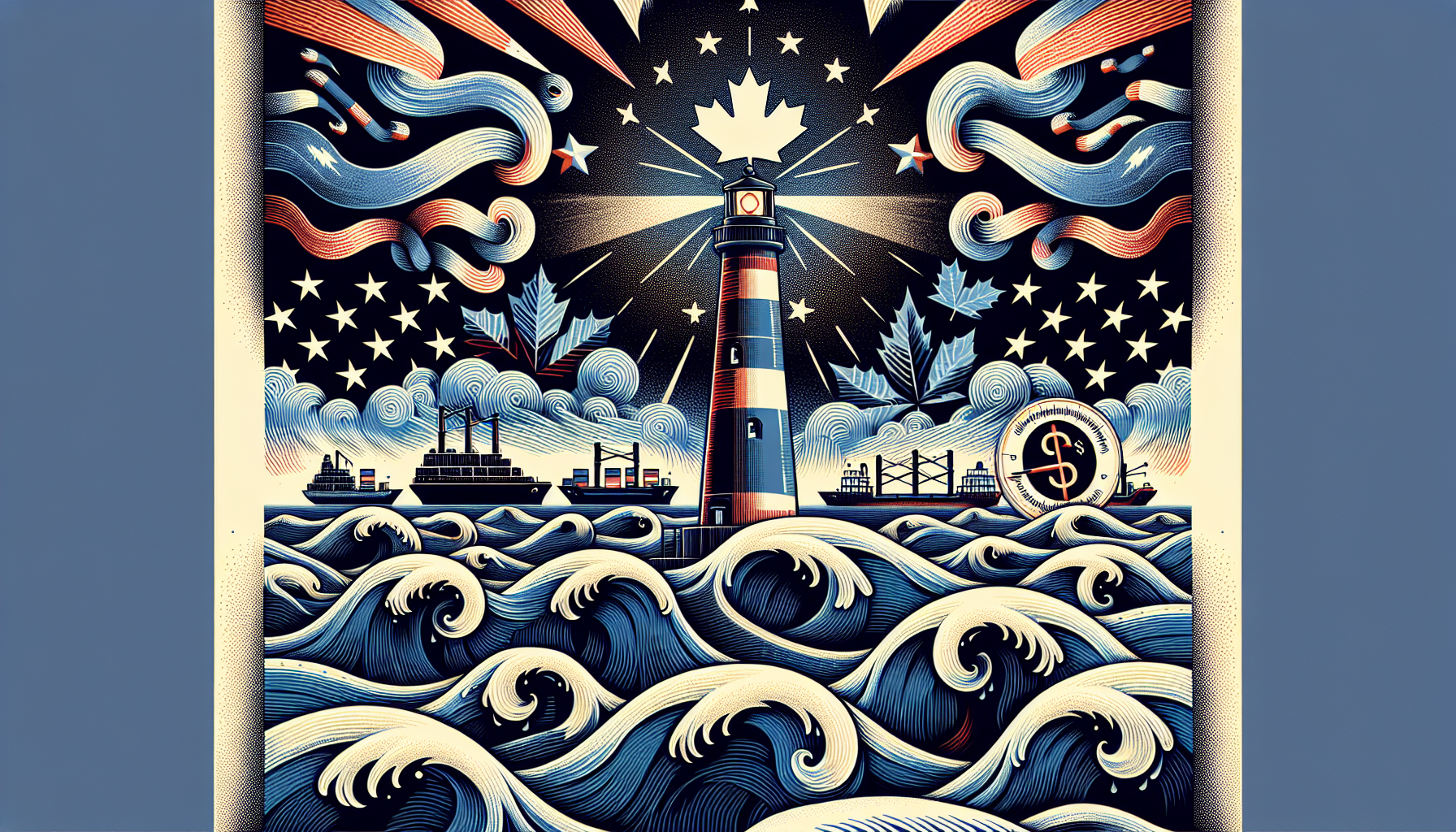Canadian Economic Concerns Amidst U.S. Presidential Election: A Closer Look
As the United States gears up for its next presidential election, the Canadian Chamber of Commerce has issued a crucial alert about the potentially harmful effects of U.S. trade policies on both nations’ economies. The report, penned by Trevor Tombe, a distinguished professor of economics at the University of Calgary, highlights the interconnectedness of the U.S. and Canadian economies and warns of the dangers posed by protectionist measures.
The Stakes: Understanding the Canada-U.S. Economic Ties
Tombe’s report underscores a fundamental reality: while Canadians are acutely aware of the economic ties with the United States, the same level of awareness does not always exist among the American populace. This lack of understanding could spell trouble, especially during times of geopolitical uncertainty.
- “Both presidential candidates have campaigned on protectionist policies that could cause uncertainty for Canadian trade,” Tombe states.
Canada is currently making diplomatic efforts, engaging with both Democratic and Republican counterparts across the border, to brace for the potential repercussions of November’s electoral outcomes.
Key Concerns: Tariffs and Their Economic Impact
One of the stark possibilities looming over this election is the proposal of tariffs, particularly Donald Trump’s suggested 10% across-the-board tariff on imports. This proposal has stirred apprehension on both sides of the border. Canada’s ambassador to the U.S., Kirsten Hillman, has attempted to quell these fears, suggesting that Washington might find it unfeasible to impose such tariffs on Canadian goods.
However, if these tariffs were to come to fruition, Tombe’s report foresees severe consequences:
- A potential reduction in the Canadian economy’s size by almost 1%, equating to approximately $30 billion in annual economic losses.
- The U.S. economy could see costs around $125 billion annually.
Historical Context: Lessons from the Past
Tombe draws parallels with the 1971 “Nixon Shock,” when the U.S. implemented a temporary import surcharge, which was eventually reversed. Despite lasting only four months, it managed to reduce Canadian imports into the U.S. by 2.6%. Given today’s intricate trade relationships and supply chains, similar modern actions could have even graver impacts.
The Broader Implications of Trade Disruption
Beyond tariffs, the report warns of further economic disruptions should other countries retaliate with their own tariff walls. Such circumstances could result in a 1.5% dip in Canadian incomes and a 1.6% drop in productivity, translating to nearly $45 billion in lost economic activity.
- “The consequences of disruption are quite similar on both sides of the border,” Tombe emphasizes.
Conclusion: Navigating Political Certainties
As the U.S. prepares for crucial elections, the outcomes could redefine the future economic landscape for both nations. With the Canada-U.S.-Mexico agreement due for review in 2026, understanding, communication, and strategic partnerships will be more vital than ever. The economies of these two nations are bound by numerous cross-border investments and intricate supply chains, which underscore the high stakes involved.
For more insight into international trade dynamics and the impacts of political decisions, stay tuned for regular updates and expert analyses.
Keywords: U.S. Presidential Election, Canada-U.S. Trade, Tariffs, Canadian Economy, Protectionist Policies, Trevor Tombe.
